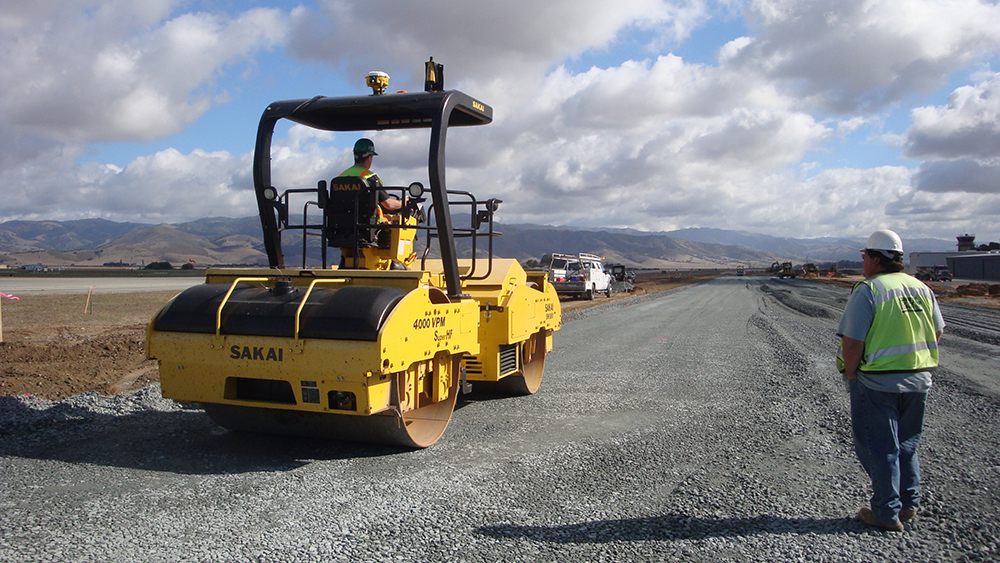
Intelligent Compaction Measurement Values – ICMV – can be difficult to understand. What’s more, there is a lack of systematic and comprehensive documents explaining ICMV.
For these reasons, the
ICMV is a generic term for advanced measurement systems instrumented on vibratory rollers as a key components of intelligent compaction (IC) systems. It is based on the acceleration signals that represent the rebound force from the compacted materials to the roller drums.
ICMVs come in different forms of metrics with various levels of correlation to compacted material’s mechanical and physical properties, such as stiffness, modulus, and density. Without ICMV, it is difficult, if not completely impossible, to determine whether compaction has reached the required properties.
In addition, ICMV can identify weak spots or difficult-to-compact locations even if there were sufficient roller passes for those areas. ICMV is the only technology that can provide measurements for as-built properties with 100% coverage of compacted areas.
The tech brief provides important technical classification and level systems leading to true layer-specific modulus and density measurements of compacted materials. It serves as a road map for using ICMV for real-time compaction monitoring, control and acceptance. The document covers how to measure and calculate ICMV, models for solving ICMV and the various levels of ICMV.
ICMV helps contractors measure the levels of compaction during the compaction process to allow just-in-time adjustment of operation to optimise the compaction efforts, which leads to improved compaction quality control (QC).
ICMV provides owners and agencies with permanent records of as-built information that can be used for forensic studies and future rehabilitation decisions, which leads to improved quality acceptance and assurance (QA). High-level ICMV can also help with the future implementation of Building Information Modeling (BIM) for pavements.
Intelligent Compaction
IC is an equipment-based technology to improve quality control of compaction. IC vibratory rollers are equipped with a high precision global positioning system (GPS), infrared temperature sensors, an accelerometer-based measurement system, and an onboard color-coded display. IC is used to improve compaction control for various pavement materials including granular and clayey soils, subbase materials, and asphalt materials. The accelerometer-based measurement system is a core IC technology that was invented in the early 80’s and is still evolving today.
Last the summer, the FHWA and Transtec released two other IC technical briefs.
Specification for Intelligent Compaction Technical Brief (FHWA-HIF-17-037) provides a review of national and state IC specifications and recommendations for future enhancements.
Colour-Coded IC Maps Technical Brief (FHWA-HIF-17-036) outlines guidelines and recommendations for colour-coded maps using IC and paver-mounted thermal profiler data.
The Transtec Group, based in Austion, in the US state of Texas, specialises in pavement design, research, testing and construction support as well as the creation of pavement software and hardware tools.
The briefing is available as a %$Linker:





